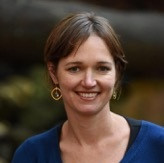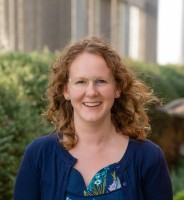Climate Change
Sustainable Living & City
Climate Adaptation & Resilience
Coastal Living
Urban Planning
Environmental Justice
Water Scarcity
AXA Awards
South Africa
2017.06.30
How Cities Can Better Adapt to Droughts in the Context of Climate Change
Project Outcome Summary
After three years of extreme drought, it became clear that Cape Town was not equipped to deal with an urban water crisis of this scale. The drought exposed failings in Cape Town’s water management, government infrastructure, resource equality, and resilience. Prof. Gina Ziervogel, AXA Research Fund Award in 2016, is an expert in climate adaptation, water governance, and social justice issues, linked to the African Climate and Development Initiative, University of Cape Town. From the Cape Town crisis, she has extracted key lessons on how cities can better adapt to climate change, with a focus on how partnerships can be leveraged to address many of the challenges that emerged during that time. Her contributions within both government and local communities have been instrumental in shaping Cape Town’s approach to water resilience and offer crucial insights to cities around the world.
The need for cross-sector coordination and stronger partnerships
During the drought, it became obvious that no government sector could single-handedly manage such extensive events. Prof. Ziervogel’s disaster management work for the City of Cape Town (CoCT) revealed a lack of well-established mechanisms for cross-sectoral responses, which showed the government that they needed to rethink their approach to disaster events. Her research also indicated that city-wide challenges need to be met with a combination of social, political, and ecological approaches, yet the government had not established strong enough collaborations to adopt this multisystem approach.
Prof. Ziervogel’s work on urban adaptation and water resilience led to her appointment on the Water Resilience Advisory Committee in 2017. Her expert input on the committee and in several other projects has encouraged the adoption of co-production approaches and learning and was pivotal in the engagement that now exists between the CoCT and the Western Cape Water Caucus. The CoCT’s stronger commitment to building relationships with NGOs and local groups has been further driven by Prof. Ziervogel’s emphasis on how critical it is to forge partnerships before a crisis. Her work has also furnished efforts to build community-level adaptive capacity. More recently, she was enlisted to examine the CoCT’s COVID response and compile evidence to further inform capacity building. Her work on water injustice has also contributed to the City’s mounting efforts to deal with informality in Cape Town.
Listening to non-prioritized voices
The drought highlighted Cape Town’s resource inequality, and it became evident that the government needed to consider the lived experiences of lower-income communities. Accordingly, the CoCT called for avenues by which to combine their own data with those collected by communities. Together with the Western Cape Water Caucus and Environmental Monitoring Group in their 2019 SenseMaker project, Prof. Ziervogel and colleagues collected residents’ stories on water-related issues with the hope of feeding these data into city decision making—a challenge that she will explore with a new Ph.D. student, Mystecia Kanengoni. To lend weight to citizens’ voices, the SenseMaker project also helped local communities develop their research skills, enabling them to lobby the government with actual evidence. In 2020, Prof. Ziervogel received the University of Cape Town’s Social Responsiveness Award for these conjoint efforts. Also at the core of her project is the recognition that inequality is undermining resilience and socio-ecological resources, particularly for lower-income communities. One major concern strongly linked to inequality is a lack of trust. Clearly communicating what is happening behind the scenes, as did Prof. Ziervogel’s book “Day Zero”, is one way to build citizens’ trust in the government.
Creating global networks and accessible information
Prof. Ziervogel is an advocate for creating global learning networks, especially after having witnessed Cape Town’s struggle to find information on crisis responses in other parts of the world. During a 6-month sabbatical funded by Fullbright in 2021, she shared lessons learned from the Cape Town drought with groups in Seattle and the University of California Santa Cruz, where she was based and strengthened relationships with the Santa Cruz water sector. Moreover, understanding that academic papers are not accessible to all, Prof. Ziervogel has used alternative formats to share her data more effectively. For example, she has created briefing notes on many of her academic papers, collaborated with a filmmaker to produce “Making Sense Of A Water Crisis”, a 17-minute documentary on the SenseMaker project, and worked with colleagues to assemble filmed interviews showcasing diverse perspectives of the drought as part of the Drought Response Learning Initiative.
As well as facilitating communication between government sectors and sparking engagement between local communities and the CoCT, Prof. Ziervogel’s endeavors enrich global perspectives on environmental resource management and show cities worldwide what transformative climate adaptation might look like.
March 2022
Find out more
 Policy support for climate adaptation and transformation: capacity building and community resilience in Cape Town
Policy support for climate adaptation and transformation: capacity building and community resilience in Cape Town  Cities must listen to people to find solutions for climate impacts: stories from Cape Town
Cities must listen to people to find solutions for climate impacts: stories from Cape Town  What Cape Town’s drought can teach other cities about climate adaptation
What Cape Town’s drought can teach other cities about climate adaptation 

Gina
ZIERVOGEL
Institution
University of Cape Town
Country
South Africa
Nationality
South African
Related articles
Sustainable Living & City
Climate Change
Climate Adaptation & Resilience
Urban Planning
Resilient Infrastructure & Safety
Environmental Justice
Post-Doctoral Fellowship
Australia
2023.06.20
Indicators for Climate Resilient City Planning
Expected start date:June-2023 Cities contribute enormously to global greenhouse emissions and are key drivers of climate change. By the same... Read more

Melanie
LOWE
Institut royal de technologie de Melbourne
Climate Change
Pollution
Aerosols & Particulate Matters
Public Health & Health Policy
Toxic Pollutants & Hazardous Substances
Post-Doctoral Fellowship
Greece
2023.06.01
Insight in Dust Fine-Mode to Mitigate Health Hazards in a Changing Climate
Expected start date:June-2023 In late-April/early-May 2022, a surge of remarkable dust storms ravaged Iraq, resulted- according to the World Health... Read more

Emmanouil
PROESTAKIS
